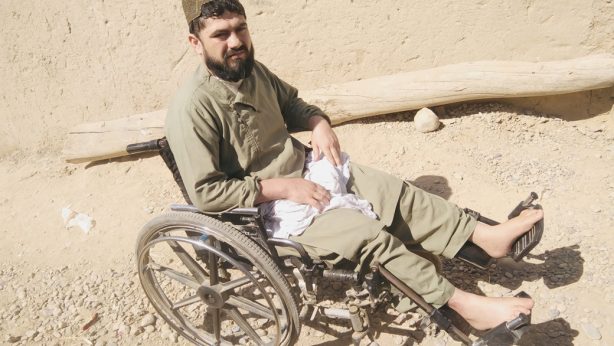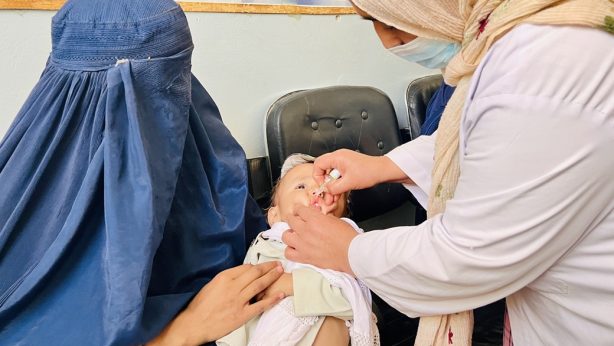Active Role of Religious Scholars in the Fight Against Polio

Abdul Saboor Serat
Faryab, Afghanistan – A number of religious scholars in Faryab province say they voluntarily participate in every polio vaccination campaign, raising awareness to encourage people to vaccinate their children and protect them from the disease.
In many regions, misinformation about vaccines may spread, such as claims that the vaccine is harmful. However, religious scholars combat these misconceptions and provide clear and scientific explanations to the people about the necessity of vaccination.
Religious scholars in Faryab deem vaccines in line with Islamic principles and issue fatwas supporting the religious legality of vaccination. These fatwas play a crucial role in the fight against polio, assuring people that administering vaccines is both a religious and humanitarian responsibility.
Today, a large number of religious scholars and mosque preachers have gathered in Maymana city, Faryab province, to participate in a public awareness meeting about polio and inform people about the harms of the disease.
Mawlawi Abdul Rauf Haqqani, a preacher at Hazrat Bilal Mosque in Maymana’s 7th district, is one of the religious scholars who voluntarily participates in every polio vaccination campaign. He educates people from the pulpit, encouraging them to vaccinate their children to prevent polio.
 Religious scholars in Faryab deem vaccines in line with Islamic principles and issue fatwas supporting the religious legality of vaccination. These fatwas play a crucial role in the fight against polio, assuring people that administering vaccines is both a religious and humanitarian responsibility © Polio Free Afghanistan/2024/Abdul Saboor Serat
Religious scholars in Faryab deem vaccines in line with Islamic principles and issue fatwas supporting the religious legality of vaccination. These fatwas play a crucial role in the fight against polio, assuring people that administering vaccines is both a religious and humanitarian responsibility © Polio Free Afghanistan/2024/Abdul Saboor Serat
Haqqani says: “Polio is a devastating viral and contagious disease that spreads from one person to another. Religious scholars always strive to use their platforms in mosques, gatherings, and events to educate people about the dangers of polio and the benefits of vaccination.”
He considers those who refuse to vaccinate their children and spread misinformation about the issue to be ignorant and misguided.
Haqqani considers polio a dangerous disease and urges everyone to safeguard their children from this paralyzing and deadly illness through vaccination.
Another religious scholar, Ghiyathullah Hanif, praises the efforts of the polio vaccination volunteers, noting that they have consistently worked to save children’s lives.
He says that it is not just the responsibility of the volunteers but of all people, especially religious scholars, to inform the public about the harms of this deadly disease.
Mawlawi Hanif urges all parents to cooperate with the volunteers so that they can reach every child and administer the vaccine.
On the other hand, officials from the Faryab’s Department of Hajj and Religious Affairs also recognize the significant role of religious scholars in eradicating the dangerous polio disease.
Khali Mohammad, the director of guidance at Faryab’s Department of Hajj and Religious Affairs, says that the province’s religious scholars have always participated in the national polio vaccination campaigns.
He adds that religious scholars often use the pulpit to educate people about the need to regularly vaccinate their children in order to safeguard them from polio.
According to figures from Faryab’s Department of Public Health, over 400,000 children in the province are vaccinated in each phase of the polio vaccination campaign, thanks to the efforts of volunteers.


